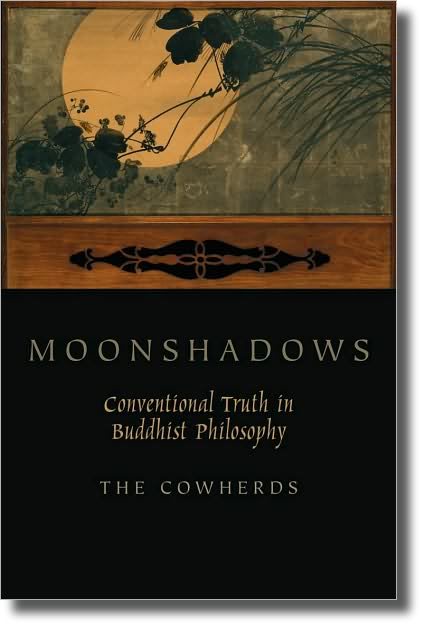Moonshadows: Conventional Truth and Buddhist Philosophy
The Cowherds (=Georges Dreyfus, Bronwyn Finnigan, Jay L. Garfield, Guy Martin Newland, Graham Priest, Mark Siderits, Koji Tanaka, Sonam Thakchoe, Tom Tillemans, and Jan Westerhoff), Moonshadows: Conventional Truth and Buddhist Philosophy, Oxford University Press, 2011The doctrine of the two truths—a conventional truth and an ultimate truth—is central to Buddhist metaphysics and epistemology. The two truths (or two realities), the distinction between them, and the relation between them is understood variously in different Buddhist schools; it is of special importance to the Madhyamaka school. One of the most influential interpretations of this doctrine derives from the commentary of Candrakīrti (sixth century ce). This book, the product of years of collaboration by ten cowherds engaged in philosophy and Buddhist studies, provides this analysis. The book asks, “What is true about conventional truth?” and “What are the implications of an understanding of conventional truth for our lives?” This book begins with a philosophical exploration of classical Indian and Tibetan texts articulating Candrakīrti’s view and uses this textual exploration as a basis for a more systematic philosophical consideration of the issues raised by his account.
